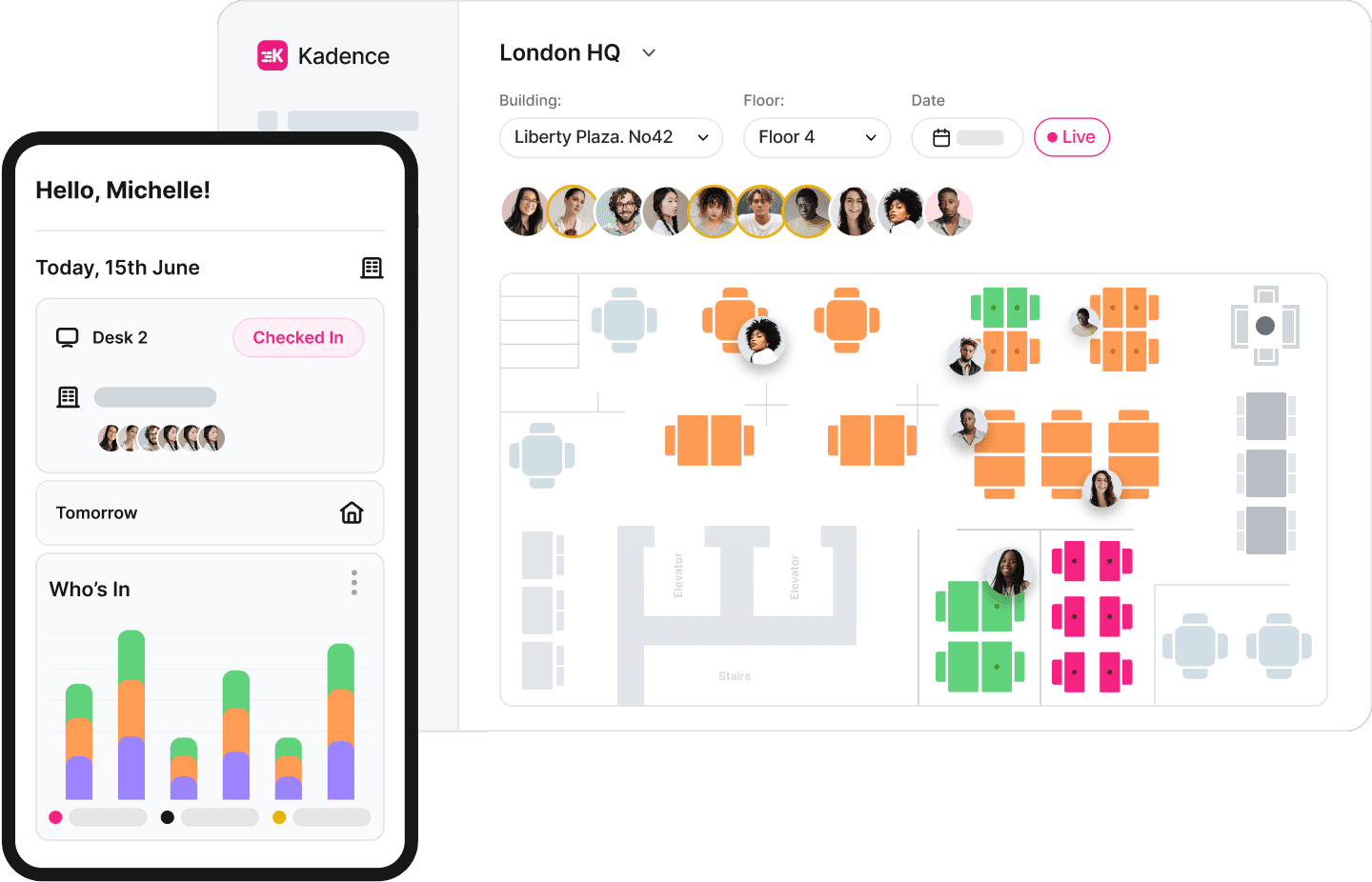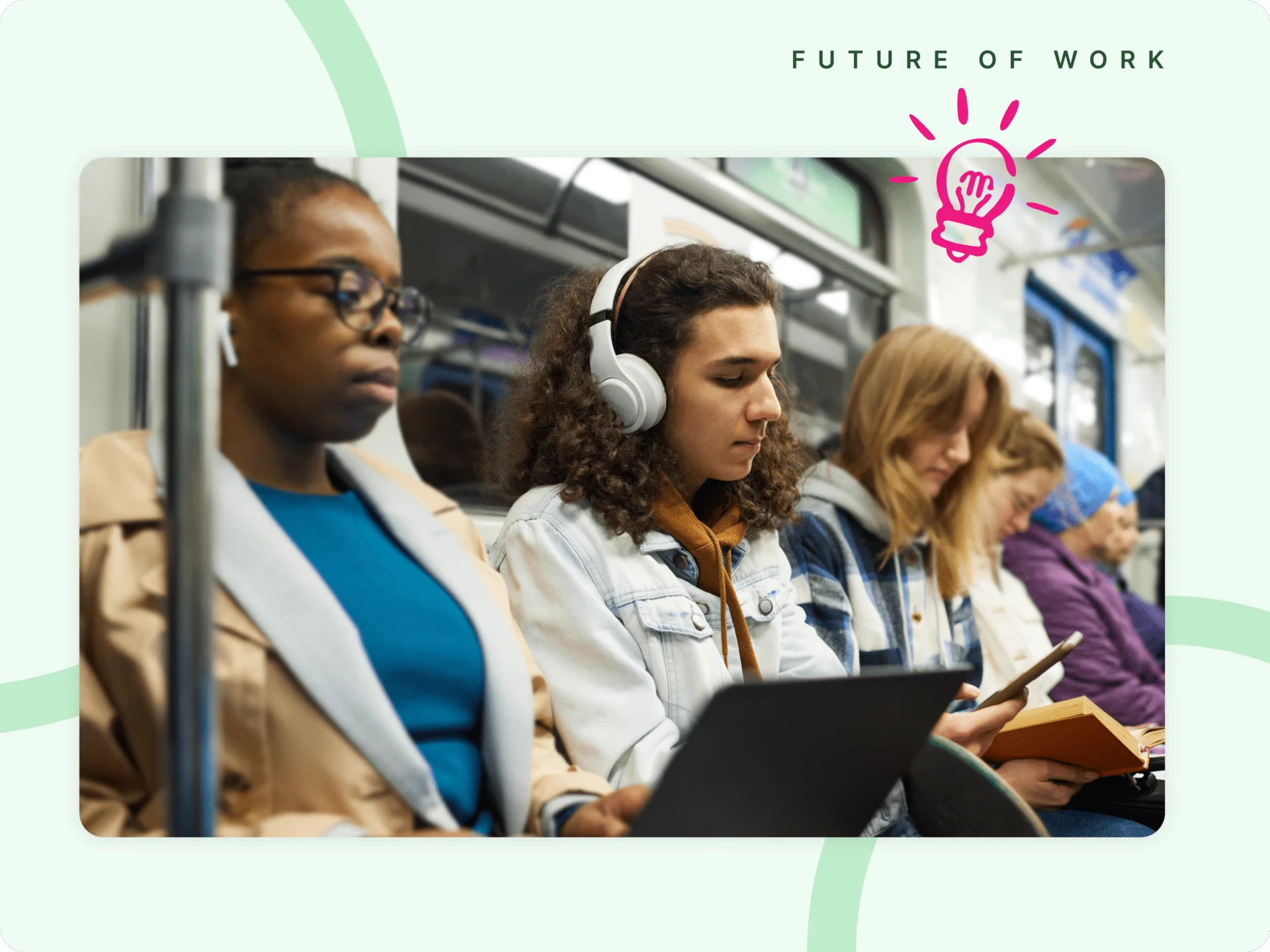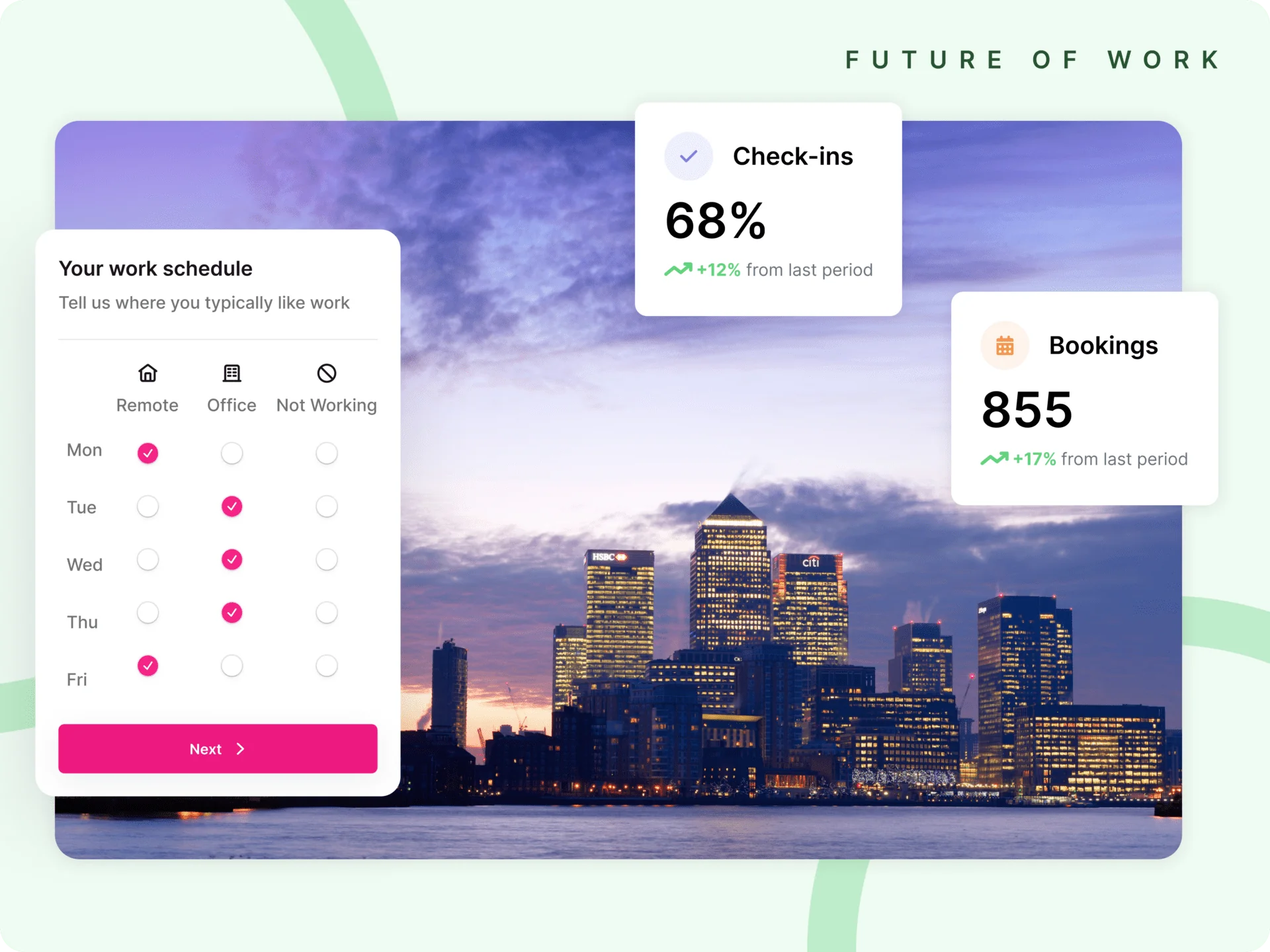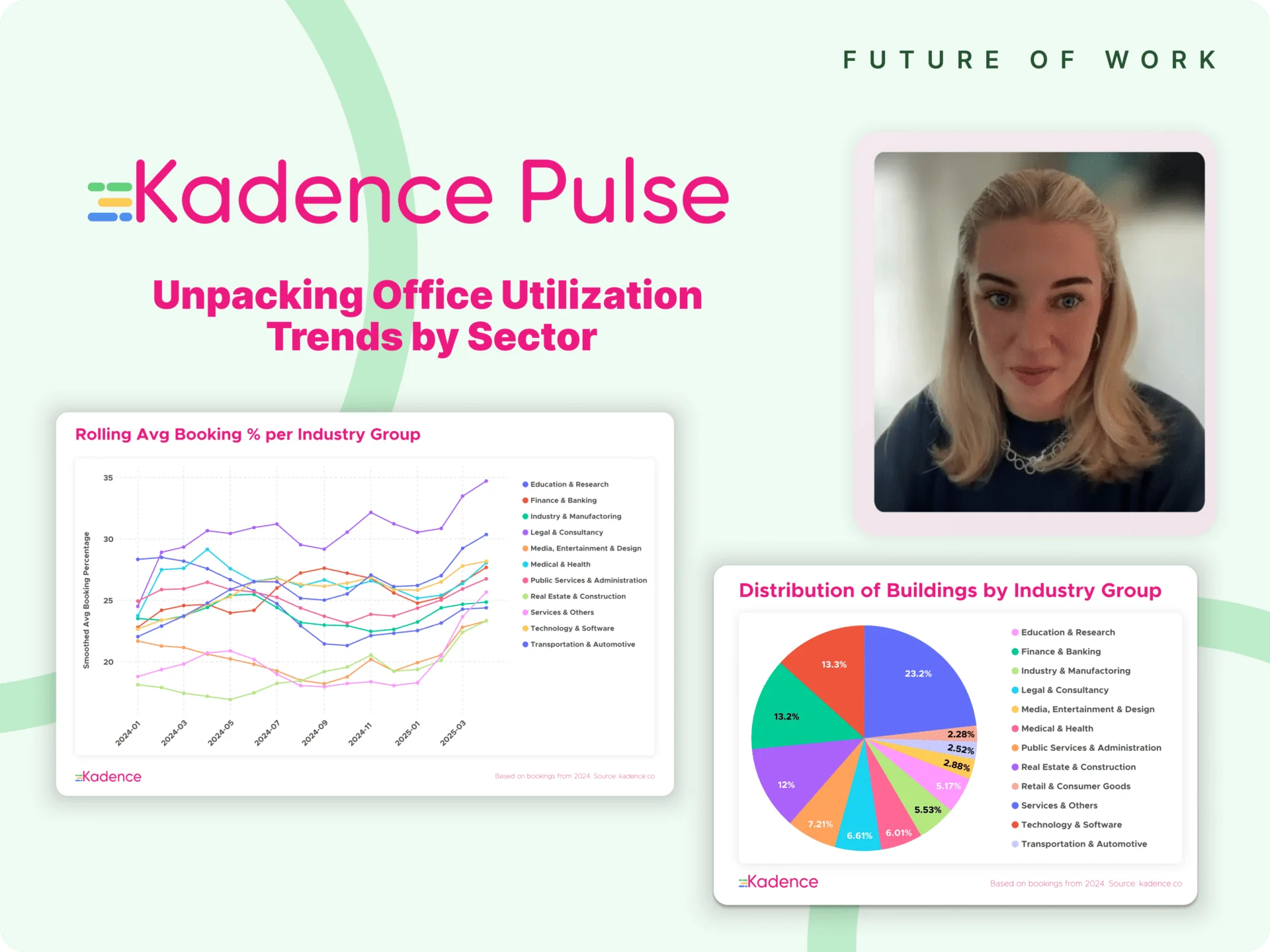AI is rewriting the rules of work, automating routine tasks and making rigid office schedules look increasingly outdated. The smartest companies aren’t resisting this shift—they’re using AI to power hybrid work models that drive productivity, attract top talent, and future-proof their business. Flexible work isn’t just a nice-to-have anymore; it’s a competitive advantage.
Fortune recently reported on how UK-based company Atom Bank has embraced AI in its hybrid work policy.
Why Atom Bank’s Four-Day Workweek Makes Sense
When Atom Bank introduced a four-day workweek in 2021, it wasn’t a PR stunt or a fleeting experiment—it was a calculated shift towards a more efficient, employee-centric way of working. Fast forward to today, and CEO Mark Mullen is doubling down: reducing working hours isn’t just progressive; it’s a logical step forward, especially in an era where AI is reshaping how we work.
Let’s break it down: Atom Bank cut its working hours from 37 to 34 per week, with no reduction in salary. The goal? Improve employee wellbeing, boost productivity, and reduce turnover. The outcome? It worked. Employees reported feeling more engaged, recruitment became easier, and the business saw no drop in performance. In fact, operational efficiency remained strong.
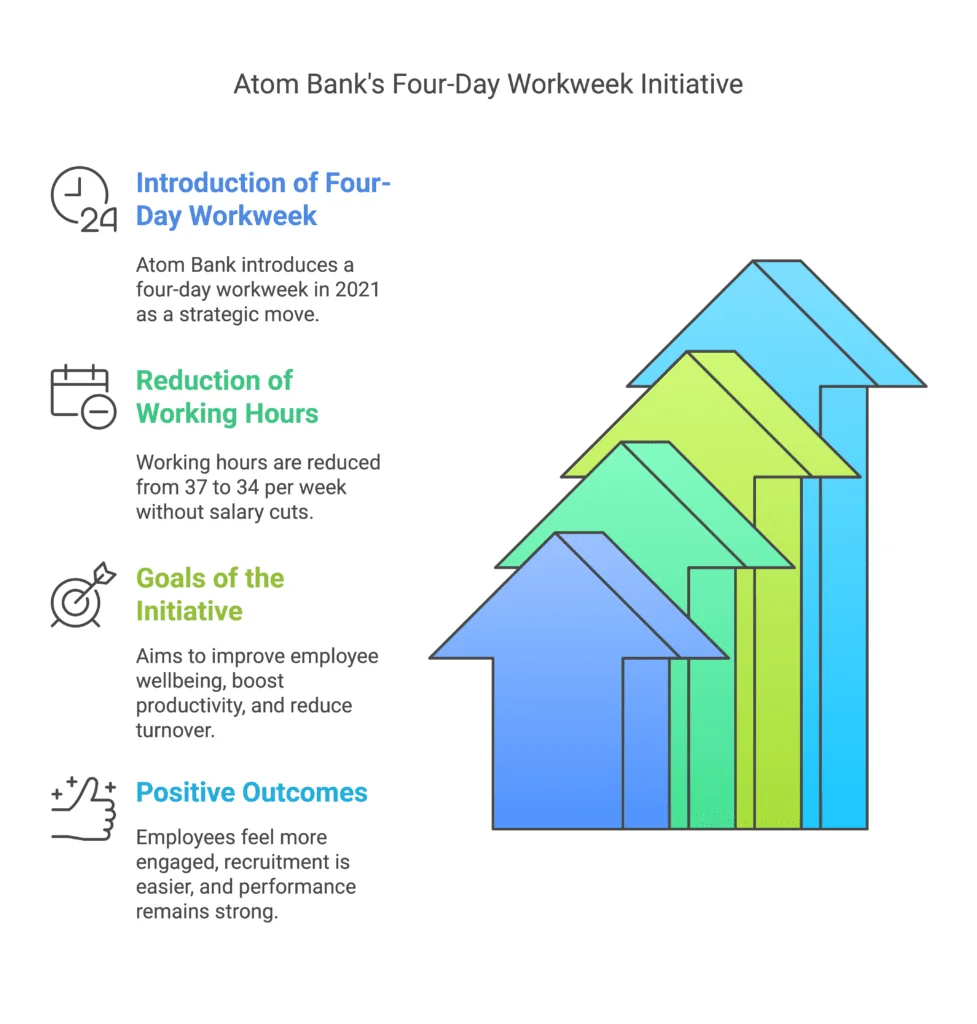
The Logic Behind a Shorter Workweek
Mark Mullen sees a future where AI fundamentally reshapes the way we work—so much so that reducing working hours isn’t just a nice-to-have, it’s inevitable.
“I think a four-day week isn’t progressive, it’s bloody logical,” said Mullen.
With generative AI advancing rapidly and businesses pouring massive investments into automation, the labor market is on the brink of a transformation. Mullen argues that working five days a week simply won’t make sense in the near future. As AI handles more repetitive and administrative tasks, companies will be forced to rethink work structures to remain competitive and attract top talent.
And this shift won’t stop at four days.
With AI accelerating workplace efficiencies, the companies that lean into this shift—rather than resisting it—will be the ones that thrive. A shorter workweek isn’t just an employee perk; it’s a strategic response to the reality of work in the AI age.
His point is clear: The trajectory of work is changing, and businesses that refuse to adapt risk becoming obsolete.
The Role of AI in the Future of Work
AI is reshaping how businesses approach work by automating repetitive tasks, streamlining workflows, and enabling greater flexibility. Here’s how AI is helping companies create smarter ways of working:
- Automating Routine Tasks – AI-powered automation is reducing the time spent on repetitive tasks, allowing employees to focus on more strategic, creative, and high-value work. McKinsey & Company’s report found that AI could automate up to 60-70% of employee tasks in data processing and administrative roles, freeing up time for more complex problem-solving.
- Enhancing Productivity & Decision-Making – AI-driven analytics tools help businesses optimize schedules, manage workloads, and improve efficiency by analyzing productivity trends in hybrid work environments. Accenture’s research reveals that companies leveraging AI are not just improving efficiency—they’re seeing exponential gains. Organizations that integrate AI into their operations report 2.5 times higher revenue growth, 2.4 times greater productivity, and a 3.3 times higher success rate in scaling generative AI applications.
- Optimizing Hybrid Work Models – AI-driven scheduling tools and virtual collaboration platforms are helping hybrid teams stay aligned while maximizing efficiency. Microsoft’s 2023 Work Trend Index found that nearly 3 in 4 employees (76%) say they would be comfortable using AI for administrative tasks, but many already rely on it to streamline communication and reduce daily workload burdens.
- Improving Employee Experience & Engagement – AI-powered HR tools are being used to personalize employee experiences, provide real-time feedback, and enhance work-life balance through intelligent workload distribution. Gartner predicts that by 2028, over 20% of workplace applications will leverage AI-driven personalization algorithms to create adaptive worker experiences.
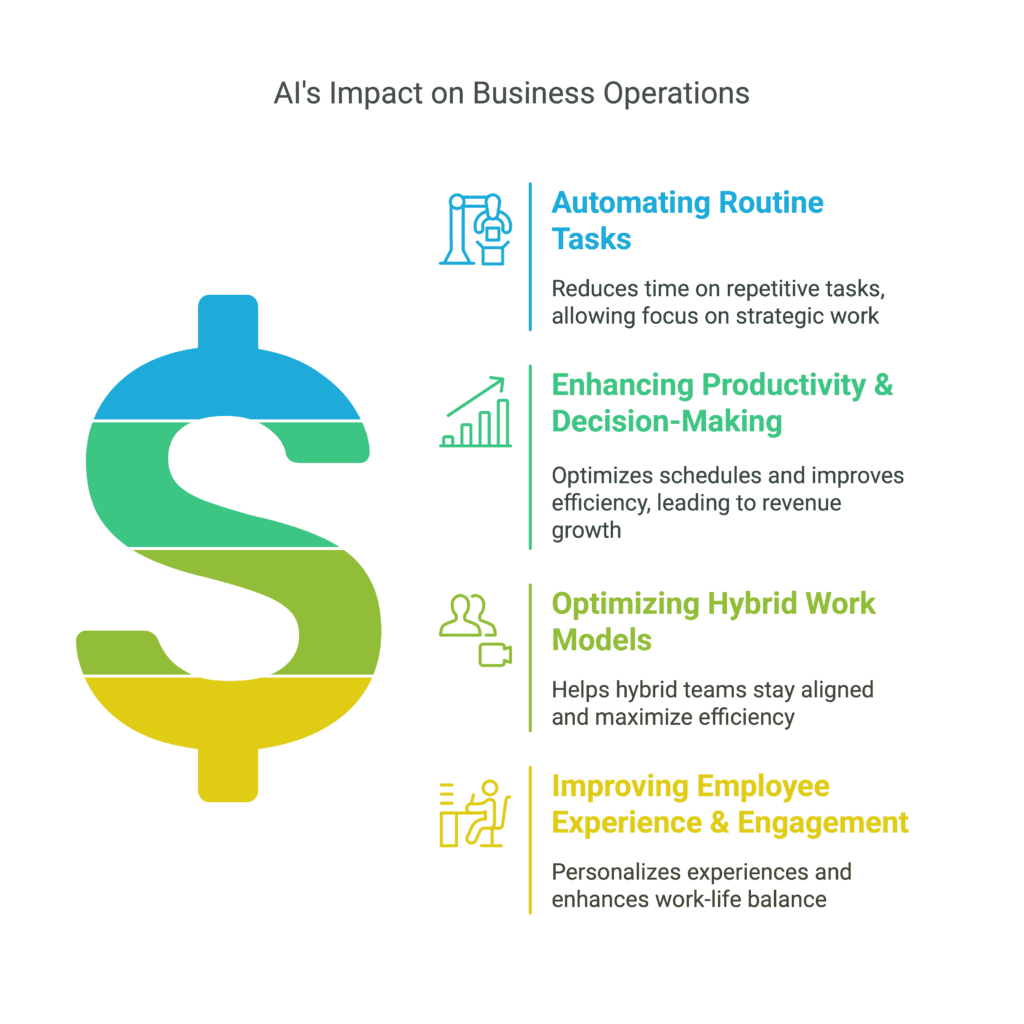
The real productivity gains aren’t coming from forcing people back into offices—they’re coming from companies that trust their teams, empower autonomy, and leverage AI to create smarter ways of working.
The Future of Work is Here—Are You Ready?
The reality is, AI is making the traditional five-day workweek obsolete. Businesses that resist these shifts in favor of outdated command-and-control policies risk losing top talent to companies that understand what the future of work really looks like.
At Kadence, we’re not just embracing AI—we’re harnessing it to make hybrid work frictionless. Our AI-powered workplace solutions help teams coordinate in-office days, optimize desk and meeting room usage, and reduce wasted office space. By leveraging smart scheduling and AI-driven insights, companies can create a work environment that’s more efficient, productive, and employee-friendly. The question isn’t whether work should change; it’s whether you’re ready to build a smarter, AI-driven future of work.
Let’s build the future of work together. Kadence can help. Book a demo today to see how we make hybrid work seamless, efficient, and employee-friendly.
